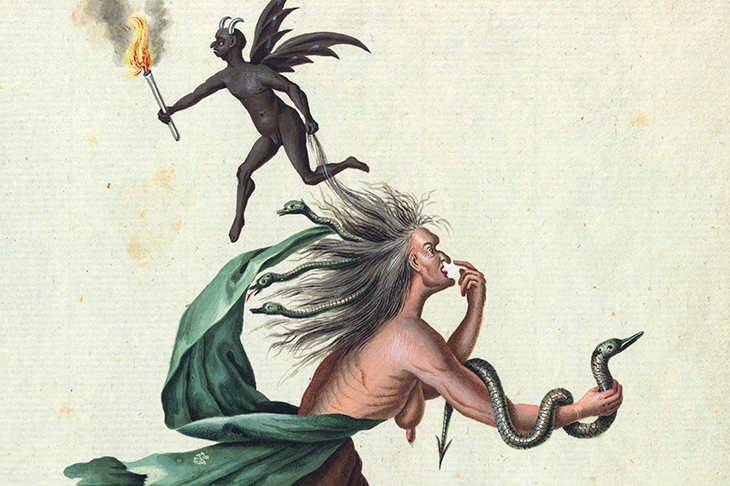In 1791, Isaac D’Israeli — father of prime minister Benjamin — published his most famous work, the Curiosities of Literature, a collection of freewheeling mini-essays on whatever literary topics happened to tickle their author’s fancy: ‘Titles of Books’, ‘Noblemen Turned Critics’, ‘On the Custom of Saluting after Sneezing’, ‘Cicero’s Puns’. One of its joys is its capaciousness — completely unsystematic, yet seeming somehow to touch a little on everything. The book is long, but the essays are rarely more than a couple of pages, sometimes less. Nothing outstays its welcome and everything is delivered in D’Israeli’s trademark style — brisk, jovial, prodigiously knowledgeable; the voice of someone who has read absolutely everything but always with an eye on rehashing it as highbrow gossip, an after-dinner speech for the literary society.
D’Israeli’s Curiosities has its antecedents (the original Spectator for one), but it might be said to have crystallised a new genre: the ragbag of literary anecdotes, unencumbered by any overarching thesis. Two centuries later, the genre is alive and well — for lovers of books, the book about books is an easy sell. The pick of this year’s crop, by a comfortable margin, is The Madman’s Library, whose subtitle — ‘The Strangest Books, Manuscripts and Other Literary Curiosities from History’ — calls back explicitly to D’Israeli. There is no hokey grand narrative to be propped up here; just a snaking roll-call of bookish oddities, organised loosely into categories — codes, hoaxes, the occult, weird science — but essentially linked simply by the fact that they are unusual and interesting.
There’s a Quran written in Saddam Hussein’s blood, and books bound in human skin, or laced with arsenic
And for the most part they are just that. There are, of course, some you’ll have heard of before: perhaps the so-called Wicked Bible of 1631, where a misprint omits the word not from the seventh commandment (‘Thou shalt commit adultery’); or maybe Yale University’s perennial crackpot-magnet, the Voynich manuscript.







Comments
Join the debate for just £1 a month
Be part of the conversation with other Spectator readers by getting your first three months for £3.
UNLOCK ACCESS Just £1 a monthAlready a subscriber? Log in